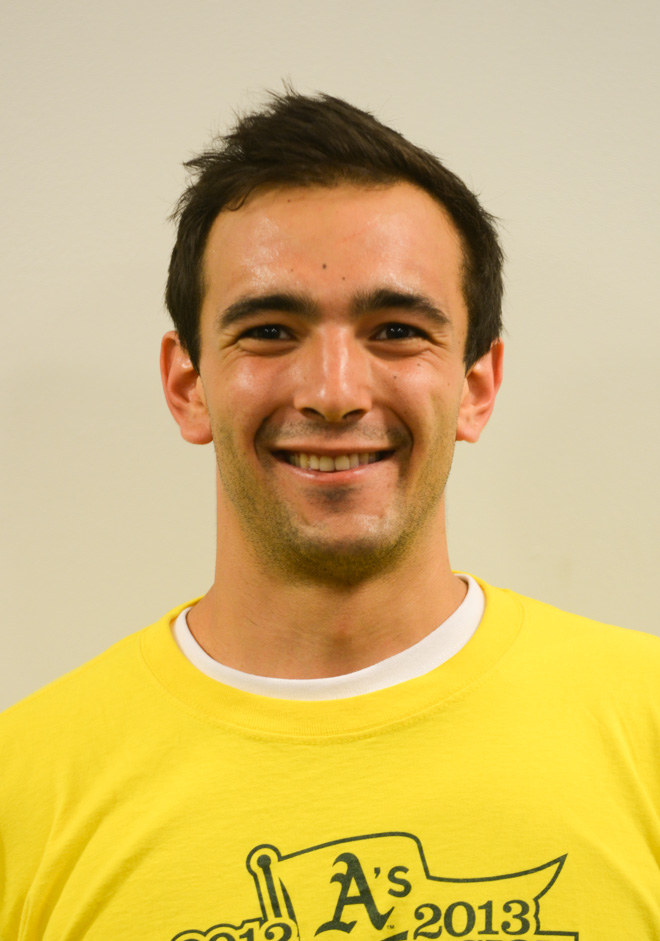The NFL combine is a strange creature indeed. First, the very fact that it merits televising is a phenomenon in and of itself. It has all the spectacle of Olympic qualifiers and all of the excitement of having a reality TV show composed entirely of commentary over a bunch of cameras at a gym. The piece I’d be most interested in seeing, the interviews full of CIA-esque questioning, takes place behind closed doors. There is no dearth of strange gamesmanship between teams, either. Every year, teams leak false information and statements for the sole purpose of trying to take down a player they are excited about in the hopes that he might fall to later rounds where they might snag him at greater value.
The combine is rife with mistakes as well. It turns a future star into a perceived bust or at least knocks the eponymous “stock” of that athlete way down. Sometimes it does the exact opposite, fooling teams’ scouts into taking a great athlete who has no business playing football. Go look up Tony Mandarich or take the more recent example of Jamarcus Russell. Just because a QB can throw the ball 60 yards doesn’t mean he can be cultivated into a NFL starter.
So all of this begs the question: What exactly do teams gain from the combine? What do they learn about players that they can’t do by looking at film and a few workouts? Sure, the 40-yard dash can bring a guy out of the woodwork and maybe, just maybe, turn him into a star. But the game isn’t played on a track or on a bench press. It just seems like the combine creates more hits than misses. For the best GMs and their front offices, the combine should be a confirmation of a player’s athleticism and nothing else. That’s why so many quarterbacks these days shy away from throwing at the combine; there’s just so much more to lose than there is to gain by showing off your arm in nothing but absurdly tight dry-fit spandex. On top of that, there are so many factors that can go into the few days and, in most cases, few hours that a player gets to prove himself.
That is one positive aspect of the combine: The combine hero that comes from a non-Division I power conference that gets the chance to distinguish himself for scouts. For many of those NFL hopefuls, the combine represents their only chance to get on a team’s radar. Even then, however, these players almost always have to do something absolutely ridiculous to stand out, and the 40-yard dash is usually the place to do it.
There is an evolution away from obsessing over the combine. NFL scouts tend to go to college Pro Days rather than use a hilariously small sample size to judge athletes. Still, there is way too much merit given to the combine after the close of the college football season. Just look at Teddy Bridgewater, who saw himself slip from a top-five pick to the 32nd pick in almost a mirror image of the draft that saw Aaron Rodgers slip to the exact same pick. I watched Bridgewater pick apart defenses all season long at Louisville and he was, in my opinion, the best quarterback by a long shot. I also watched Johnny Manziel get bailed out by his receivers, Mike Evans in particular, all year long. The point is that NFL teams often overthink the draft to the point of self-destruction.
I also think that it takes some serious guts to risk draft stock to go to the combine if you are a high slated pick. If you haven’t heard, former Oregon Duck Marcus Mariota will be throwing at the combine while former Florida State QB Jameis Winston will not (which no one should really care about that much). How much do you want to bet that Winston will end up going first in the draft? Sure, there are a whole bunch of other factors behind that forecast, namely that many teams think that Mariota might be a system QB, while Winston played in a more pro-style system at Florida State. But I think there is a historical precedent to avoiding the combine altogether. Unless you have something to prove, why bother?
At the same time, it says a lot about Mariota. He has much more to lose than to gain, but damn the consequences, he’s going anyway. I love that about a guy — someone who wants to get out at every opportunity and silence the critics until there aren’t any left.
Maybe scouts just like the mysterious guy who plays hard to get. There is definitely something valuable in letting your game film do all the talking. But, I think Mariota’s, and Brett Hundley’s as well, decision to go forward with the absolutely ridiculous task of throwing a few passes without pads or helmets in February with millions of dollars on the line shows character. That’s the kind of leader I want on my team, a guy with a chip on his shoulder and something to prove even when he’s on top of the world.
The combine is silly, an exercise in extravagance and a reflection of the NFL’s narcissism. It was only useful when there weren’t cameras absolutely everywhere and now it serves only to justify the horrendous decisions that teams make and so often compounds those decisions. Talent scouting should be restricted to watching people play the game and maybe a few other metrics. However, it takes a lot of bravery to face that circus, a circus where the fastest three 40 times will merit a new Porsche. That bravery should be rewarded.
Nic Radoff is just bitter that scouts have frowned upon his 5-foot-7 frame and have overlooked his intangibles. Tell him to keep following his NFL dreams at nradoff ‘at’ stanford.edu.
